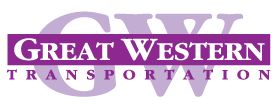LTL Freight
LTL (less-than-truckload) freight can weigh in the range of 100 to 150 lbs and 10,000 to 20,000 lbs. LTL freight can be various of shapes and numerous sizes. Although the weight guidelines are not set in stone, the weights mentioned before are a general “rule of thumb” weight minimums and maximums.
LTL freight is a term that applies to all types of trailers, which include: dry vans, reefers and flatbeds. According to the trailer type the LTL weight guidelines will change.
What is freight class?
The shipment’s freight class determines the trucking company’s shipping charges. There are 18 freight classes ranging from class 50 (the least expensive) to class 500 (most expensive). The class of your shipment is determined by the contents of the shipment and NMFC item number (National Motor Freight Classification – this is the standard that provides a comparison of commodities moving in interstate and intrastate commerce).
Are you shipping LTL? Read the rest of this article.
LTL Shipment Tips
Will you be shipping LTL from Las Vegas, NV to Houston, TX?
Some examples of the more common types of packaging, plus useful tips on packing and freight protection.
- Cartons – Use the column or interlocking (pinwheel, row or brick) stack method. Use stretch wrap for additional protection.
- Crates – Try to use plywood to construct the crate. Construct the crate with diagonal braces and suitable fasteners for the corners.
- Bags – Try to use the interlocking stack method. Add a solid bottom cushion or load protector. Tightly fasten bags to the pallet.
- Spools and Reels – Be sure to securely anchor the reel to the pallet. Make sure the pallet is fork-lift ready.
- Drums – If the drums are on pallets, band and protect the drums. Support them with a solid bottom.
- Pipes and Long Freight – Bundle all items, secure properly and properly crate.
- Tires – Band and stretchwrap a tire or multiple tires to the pallet. Consider an anti-skid surface for tall stacks to reduce product movement.
Palletizing Shipments Tips
Palletize If:
The individual pieces are less than 84 inches high.
Do Not Palletize If:
The the sides of the cartons extend over the sides of the pallet.
Additionally various types of LTL packaging can be used to ensure freight protection and pilferage prevention. In most cases sealing the freight properly and adding tamper-evident seals will mitigate loss.
Some overall freight prevention tips and devices are:
- Tractor Air-Brake Lock
- Trailer Door Lock
- Roll Up Door Latch Guard
- Transportation Cargo Security Kit
- Covert GPS Tracking
- GPS trailer tracking
- Cable Seals
- Tamper-Evident Tapes & Labels
Commonly Shipped LTL Freight
- Automotive Parts
- Computers, Laptops and Video Games
- Consumer Goods
- Semiconductors & Related Devices
- Heavy Industrial Equipment and Supplies
- Paints, Varnishes, Lacquers and Enamels
- Manufacturing Equipment and Supplies
- Paper and Plastics
- Pharmaceutical Products
- Telecommunications Products
- Wholesale-Industrial Machinery and Equipment
When comparing FTL (full truck load) vs LTL, FTL shipments will in fact be less expensive in terms of volume of shipment delivered.
However, in many cases due to the nature of orders coming in from client’s, smaller shipments have to be shipped to fulfill orders and can not be aggregated into FTL shipments. Also many industries benefit by LTL due to the lower volume and size of commodities produced in the industry.
What are Accessorial Charges?
These are additional services required that are beyond the standard shipping service provided by the trucking company. These will require additional fees to be charged. Some examples of extra services are:
- Lift Gate Service
- Residential Service
- Fuel Surcharge
- Additional Insurance
LTL vs Parcel
In today’s competitive business economy substantial volume shippers are presented with the tough decision of determining whether LTL (less-than-truckload) or parcel shipping is the best option for order fulfillment needs. Historically, the general rule of thumb was that freight over 150 pounds was shipped on an LTL carrier. Over the last 10 years, this changed as parcel carriers supplemented heavier weight freight transport to their services. Since then the line between LTL and parcel shipping standards has become somewhat fuzzy, making the decision to use one service over the other a more complex decision to make.
What are the several factors to take into account when deciding to ship via LTL versus a parcel carrier.
Maneuverability of Freight
The 150-pound rule of thumb may no longer apply to all shipping situations, a key factor is to consider weight and size characteristics. Some shipments might be small and compact, while other packages might be large and bulky.
Large, weighty and cumbersome packages are more suitable to be handled by a LTL trucking company, while light and standard sized individual packages are best handled by a parcel carrier. One reason why LTL transit times are slightly longer than parcel transit time, is that the LTL route and processing is typically less automated, as it requires machinery such as forklifts, instead of conveyor belts, to load and unload.
In addition, LTL carriers have their trucks and operations better optimized for full pallet loads rather than LPL (less than pallet load). LPL shipments are commonly taken apart by freight carriers to fill their trailers to capacity. This can cause damages or lost packages due to added handling that you may not have anticipated for in the packaging of the freight.
Quantity
An important question to consider in your business operations is if your company can combine a group of similar packages and ship them altogether. Or do you have a limited amount of shipments that leave your facility on a weekly or daily basis?
Limited quantity shipments are typically sent out individually via a common parcel carrier. Sending out larger, consolidated shipments often saves your company on operational costs. Shipping consultants can analyze your shipping habits and provide detailed insight into your past and current shipping patterns to help you streamline your shipping efforts.
Accessibility
At both the pick-up and delivery locations the ease of access may be an issue for LTL carriers. Parcel carriers will offer direct door-to-door delivery, this is something LTL carriers often cannot do. When your LTL delivery is located on the 2nd floor of an office building, you may see an extra fee on your carrier invoice to cover the delivery. Parcel carriers are also more likely to deliver to office and residential addresses, whereas LTL carriers generally prefer to ship to loading docks.
LTL Transit Times
In most cases, parcel carriers have the capability of guaranteeing delivery by a certain time and day. LTL on the other hand has more of a delivery window, thus the shipment may arrive over a 1 to 2 day window. Having a wider delivery window is a must for LTL shipping, unless the LTL shipment is expedited, this narrows down the delivery window.
LTL Tracking
Parcel carriers have numerous online shipment tracking, many parcel carriers have to deal with millions of packages per day and only online tracking can provide answers to the whereabouts of the package. LTL is different since there are one or more pallets included in the shipment and thus tracking is more personalized. Quality LTL shippers provide verbal verification of proof of delivery and delivery confirmation.
The Most Important Factor: Cost.
Both parcel and LTL carriers will charge service fees, that may be added depending on circumstance. Evaluating your current shipping patterns will help you determine which option is best.
Will re-allocating freight volume away from your parcel operations to LTL provide potential savings?
Currently are you optimizing your shipments to take advantage of the most effective rates?
Taking the time to analyze your current parcel and LTL patterns will help you identify cost reductions and potential savings opportunities. Ultimately, your shipping strategy should be one that best meets the needs of your company’s business plan and customer satisfaction. Even the best product in the world will lose favor with your customers if it is not delivered intact and on time. For complete customer service, parcel carriers typically have the flexibility that meets customers shipping needs, but LTL carriers pick up where parcel carries can not provide delivery capacity. Regardless of your selected service type, be sure to consider the advantages and disadvantages of each option, and their suitability to your current and future business objectives.
LTL Shipping Services
Shipping LTL (less-than-truckload) or partial freight can be a time consuming process and prone to over-paying LTL motor carriers. Great Western Transportation will simplify LTL the process and optimize the LTL freight rate. Our LTL experts have been assisting clients over 20 years to coordinate every detail of their LTL shipments and providing LTL solutions.
Whether you have a single pallet or enough pallets to fill half a truck, Great Western Transportation makes it easier than ever to get your product where it needs to deliver. We offer a multitude of cost-effective solutions and competitive pricing.
When you ship with us, you not only get great LTL freight rates and guaranteed delivery options, but also knowing there are real people monitoring your freight movement and not just a computer program. Great Western Transportation offers personalized customer support. Each customer works with a single LTL expert to address their freight and transportation needs. You’ll never experience the aggravation of speaking to a customer service representative who is not familiar your shipment. Your dedicated freight consultant will always be ready to give you an updated ETA and answer all your questions regarding your shipment.
Ship LTL Freight Anywhere in North America and to Canada
Great Western Transportation provides LTL freight trucking capacity that will deliver your freight anywhere in the US or freight destined to Canada. Whether you need to ship 500 miles or 5,000 miles in North America and into Canada, we are phone call away: (800) 972-8484.
Expedited Shipping
Great Western Transportation offers expedited freight rates to assist with your time-critical shipping requirements. Because of the short shipping windows in today’s just-in-time manufacturing environment, Great Western Transportation provides the ability to offer expedited delivery, including team drivers. We utilize team or relay transit strategies to provide the optimal expedited freight services to fulfill your customer’s just-in-time orders. LTL on time delivery performance is yet another tradition at Great Western Transportation.
Special Handling
Our LTL freight experts have been extensively trained to handle high-value and/or delicate materials. We understand that such shipments may require special handling and transportation precautions to avoid any damages. Applying over 20 years of experience and applying all precautions to your shipments is our focus.
Volume Quote Pricing
Volume shipments will generally be considered as shipments that exceed 8,000 pounds and/or 8 pallets. Great Western Transportation can offer discount rates for shipments of this volume. We will work to find the best rate and fastest transit time available. Great Western Transportation is the expert based on experience when it comes to shipping partial loads delivering to: Las Vegas, NV, Houston, TX and Fontana, CA.
Simplify Your LTL Trucking
When you as the business owner attempts to choose the right freight carrier, classification and shipping options, you will realize that LTL shipping can become complicated.
Just consider the following LTL industry complexities:
- Distance of the shipment transported
- Shipment’s weight
- Density of the commodity being shipped
- Commodity’s susceptibility to damage
- Value of the commodity
- Commodity’s loading and handling characteristics
- LTL Fuel Surcharge
- LTL Zone Maps
- LTL NMFC Codes
- LTL Linear Foot Rule
No need for LTL business complexities!
Great Western Transportation makes LTL shipping manageable by taking care of all the hard work for you. Get instant freight rates provided by your dedicated freight consultant. Ship all your LTL freight via Great Western Transportation and receive the best service, price, and guarantee.
For more than 20 years, we’ve been working on relationships with with our clients and providing them: higher discounted rates with the goal of being able to save the maximum amount of money possible.
When you choose to schedule your freight shipment via one of our knowledgeable account managers to help you through the shipping process, you will realize our transportation operations are fast and you are kept in the loop all the time. All freight shipping options and prices are available to you, including paperwork, invoices and past quotes and freight shipment information.
Our freight consultant will keep you informed on where your freight is at all times.
Great Western Transportation is your best choice for transporting all your LTL (less-than-truckload) freight to: Las Vegas, NV, Houston, TX and Fontana, CA. We guarantee the best combination of price and services every time you ship with us. Start your free freight quote now call us at (800) 972-8484 to learn more!






